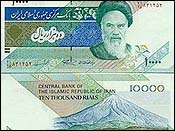 The Office of Foreign Assets Control (“OFAC”) has taken the old Iran sanctions regulations, torn them up, thrown them away and issued a new set of regulations, now remonikered, for good measure, as the Iranian Transactions and Sanctions Regulations (“ITSR,” pronounced Its-er, as in “It’s Er Huge Mess.”) These regulations purport to reflect Executive Order 13599, issued February 5, 2012, which sanctioned all the remaining banks and financial institutions that had not been previously sanctioned under prior orders. Of course the 800-pound gorilla in the room, namely the recently issued Executive Order 13628, which expanded the Iran sanctions to foreign subsidiaries of U.S. companies, goes completely unmentioned. If you read the “new” regulations alone, you would get the incorrect impression that overseas subsidiaries of U.S. companies could still do business, under limited circumstances, with Iran. Why they didn’t hold up these regulations until they could make them, you know, current is a great mystery fathomed probably only by a select few in the subterranean bowels of the Treasury Department.
The Office of Foreign Assets Control (“OFAC”) has taken the old Iran sanctions regulations, torn them up, thrown them away and issued a new set of regulations, now remonikered, for good measure, as the Iranian Transactions and Sanctions Regulations (“ITSR,” pronounced Its-er, as in “It’s Er Huge Mess.”) These regulations purport to reflect Executive Order 13599, issued February 5, 2012, which sanctioned all the remaining banks and financial institutions that had not been previously sanctioned under prior orders. Of course the 800-pound gorilla in the room, namely the recently issued Executive Order 13628, which expanded the Iran sanctions to foreign subsidiaries of U.S. companies, goes completely unmentioned. If you read the “new” regulations alone, you would get the incorrect impression that overseas subsidiaries of U.S. companies could still do business, under limited circumstances, with Iran. Why they didn’t hold up these regulations until they could make them, you know, current is a great mystery fathomed probably only by a select few in the subterranean bowels of the Treasury Department.
I will have more to say about the new regs over the coming days, but I want to start with an issue in the new regs that is endemic of the problems of interpretation that they impose, particularly with respect to actually paying for things in Iran that are otherwise permitted by ITSR. Â The example I want to use involves the way personal, non-commercial remittances to Iran are now handled.
To understand what’s going on, let’s roll the clock back to February 2012 when E.O. 13599 was issued. As this blog noted then, the executive order blocking all financial institutions in Iran, if read alone, would make personal remittances to Iran somewhat difficult unless you stuffed all the money in a suitcase and hand-carried it to Iran. To address that issue, OFAC issued General License B that permitted non-commercial personal remittances as long as they are not made through Iranian banks or other entities, such as Bank Saderat or Bank Melli,  that were previously blocked prior to the issuance of E.O. 13599.
Now fast forward to the new regulations. General License B has been “disappeared” from the OFAC page on the Iran sanctions (although an unlinked zombie version of it can still, at least for the time being, be found on the OFAC website here and I have preserved a copy of the license for future anthropologists studying the strange habits of OFAC here). New section 560.550 deals with personal remittances and permits “personal, non-commercial remittances” that are “for or on behalf of an individual ordinarily resident in Iran.” Some portions of General License B, such as subsection (b) permitting the transferring U.S. financial institution to rely on the representations of the person originating the transfer, have made it into section 560.550. But, and this is the rub, the language in General License B authorizing the use in Iran (through third country banks, of course) of banks that were only blocked by virtue of E.O. 13599 is pointedly missing.
Without General License B, a number of other sections work to prohibit a personal remittance to Iran if any Iranian financial institution is involved. Section 560.211 says that all property of all Iranian financial institutions is blocked and may not be dealt in. Section 560.422(b) says that any funds transferred or attempted to be transferred through an Iranian financial institution are property of the Iranian financial institution and therefore blocked. (This clarifies that such transfers aren’t simply the property of the bank’s account holder that is the beneficiary of the transfer.) And section 560.502(c) says that a general license has the “effect of removing a prohibition contained in this part from the transaction, but only to the extent specifically stated by its terms.” But section 560.550 which permits personal remittances does not specifically authorize dealing with Iranian financial institutions blocked by section 560.211. The only specific mechanism for transfer mentioned by section 560.550 is in subsection (d) which specifically authorizes hand-carrying these funds.
Of course, I don’t believe that OFAC actually intended this result. Clearly the problem of dealing with Iranian financial institutions designated only by virtue of E.O. 13599 will make it virtually impossible for U.S. persons to engage in the many, if not all, of the other activities permitted by general licenses set forth in the new regulations. For example, it seems difficult to see how to compensate Iranian lawyers for trademark services permitted under section 560.509 without involving an Iranian financial institution.
Frankly, I don’t know whether this conundrum is the unintended result of sloppy drafting by OFAC or is an intentional ambiguity designed to discourage activities that OFAC doesn’t believe it could, as a political matter, prohibit outright.
 Permalink
Permalink
Copyright © 2012 Clif Burns. All Rights Reserved.
(No republication, syndication or use permitted without my consent.)

 Posted by
Posted by  Category:
Category: 

